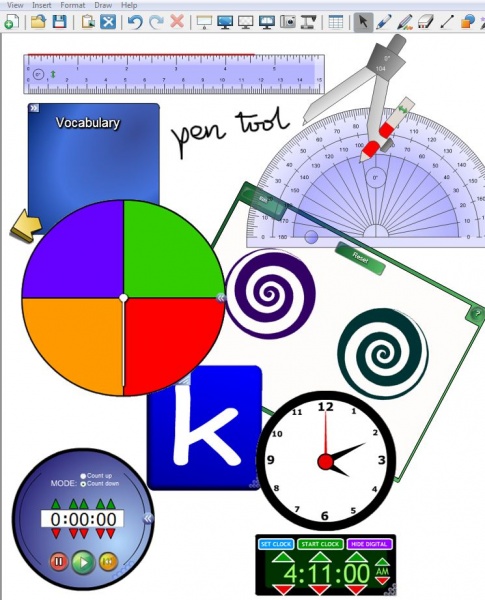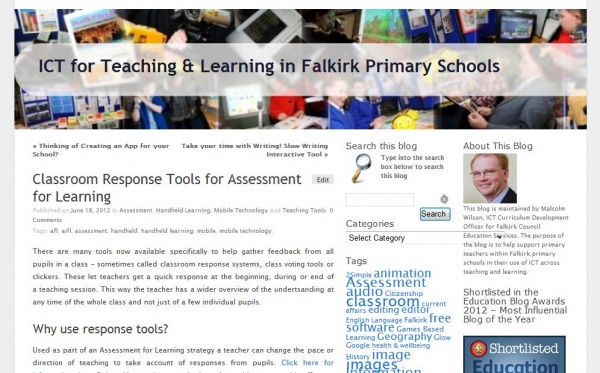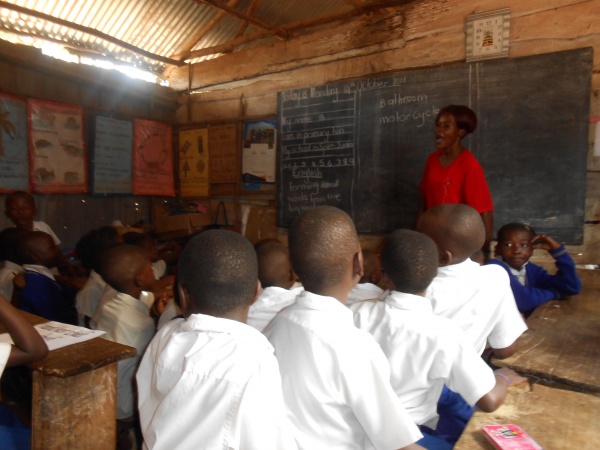 Malcolm Wilson, ICT Curriculum Development Officer in Falkirk Council Education Services Curriculum Support team, presented a hands-on continuing professional development session for staff from primary and secondary schools in Falkirk on the use of Smart Notebook software with the Smart Board interactive whiteboard to support active learning across the curriculum.
Malcolm Wilson, ICT Curriculum Development Officer in Falkirk Council Education Services Curriculum Support team, presented a hands-on continuing professional development session for staff from primary and secondary schools in Falkirk on the use of Smart Notebook software with the Smart Board interactive whiteboard to support active learning across the curriculum.
Participants were guided through hands-on use of a host of interactive techniques using Smart Notebook software with the Smart Board which a teacher could use to support learning and teaching in the classroom across the curriculum. These included different ways of using tools like the magic pen tool (to zoom in, magnify, spotlight, and fade out annotations), using pen tools for annotations and sorting on screen as well as handwriting recognition, moving pictures to hide and reveal, matching images within tables, and page activity recording.
The variety of different gallery items including engaging interactive tools such as timers were illustrated in various activity contexts, as well as how to adapt the host of lesson activity toolkit pre-created game-type interactives to any topic. Hands-on use of the resources on the Smartboard by participants illustrated how the activities can be used to help engage pupils in their learning.
 There are also many free pre-created templates and question sets ready to be downloaded and adapted by teachers from Smart Exchange to suit the needs of their own pupils. Click here for the online Smart Exchange site where these can be downloaded.
There are also many free pre-created templates and question sets ready to be downloaded and adapted by teachers from Smart Exchange to suit the needs of their own pupils. Click here for the online Smart Exchange site where these can be downloaded.
The resources used during the session can be accessed by clicking here (note that a Glow username and password is required to access these resources).
Comments from participants included:
“Well delivered and well organised course with a clear focus, interesting and relevant content and an engaging presenter.”
“Taught me new ways to use my SMART board which will in turn enhance learning of my pupils.”
“Showed me how to use different functions on a SMART board that I had never seen or used before, with examples of how they could be used, which was helpful so I can start using these with my own class.”
“Provided practical opportunities to engage with the materials presented, and the delivery of the course was engaging and accessible to someone looking to develop their use of a SMART board in their classroom.”
“A very well presented course that catered for a cross section of abilities.”
“The hands on overview was very helpful and the delivery style of the presenter was at a pace that was very easy to follow.”
 Yvonne McBlain, support teacher with Falkirk Council Curriculum Support Team delivered some new professional learning around the Higher Order Skills on 7th November. Click here to take a look at this session and contact Yvonne on yvonne.mcblain@falkirk.gov.uk for more detail about this course.
Yvonne McBlain, support teacher with Falkirk Council Curriculum Support Team delivered some new professional learning around the Higher Order Skills on 7th November. Click here to take a look at this session and contact Yvonne on yvonne.mcblain@falkirk.gov.uk for more detail about this course.













